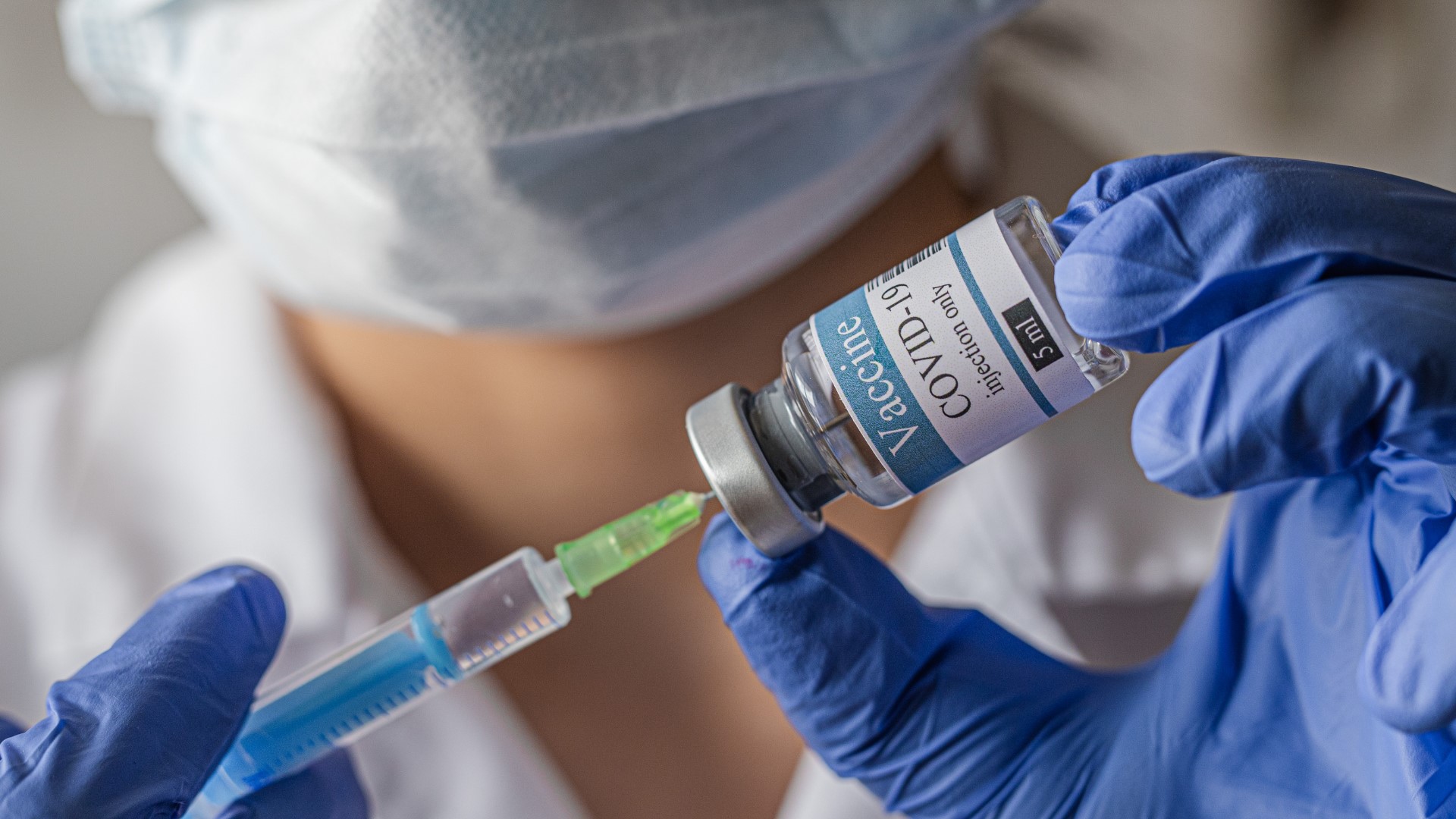CHARLOTTE, N.C. — Police officers were one of the first groups to get COVID-19 vaccine access in the Carolinas, but vaccination rates within local police departments are, in most cases, even lower than the national average.
According to the White House, about 58% of Americans have received at least one shot.
CMPD has one of the highest law enforcement vaccination rates in the country, at 60%. But most others fall well below that.
A Washington Post survey found most departments hovering around 30 to 40 percent.
The survey found that in Atlanta, 36% of officers have been vaccinated. The Las Vegas PD reported 38% of their officers were vaccinated. In Columbus, 28%. In Phoenix, only 23%.
“I'm concerned about the low numbers," said Dr. Michael Thompson, professor of public health sciences UNC Charlotte.
He says those low rates are a public health concern.
“If they're unvaccinated, they're vulnerable," Dr. Thompson explained. "And because they are coming in contact with so many people, there's a chance for kind of a super spreader that within the police department, in which case you have suddenly a depleted police force to respond to public emergencies. The other concern is because they are interacting with the public, they're also potentially spreading to others.”
Charlotte-Mecklenburg police said their vaccination rate is about 60%, one of the highest in the nation. Only Boston, Denver, and Honolulu rank higher at 63%, 69%, and 80%, respectively.
“We really jumped on this early as a department," said Lieutenant Dondi Pogue, who oversaw the department's COVID response team.
He believes part of the reason their vaccination rate is so high is because for many of their officers, the pandemic hit home.
"A lot of the officers here saw the impact it had, they saw fellow officers go down with COVID," Lt. Pogue said. "And they weren't ever able to work from home. So they were always coming to work and seeing the effects."
He says the department also mandated a vaccine information session for all staff, which he believes helped ease fears and hesitancy.
“We went through the CDC, went through the Mecklenburg County Public Health, and we put together a robust training that we mandated for the whole department," Lt. Pogue explained. "We put together all that stuff to try to quell any worries they had about what's going on with these vaccines because a lot of misinformation gets out. Also just stressing, you know, hey, this is important.”
Other departments in our area either fall below the national average or aren’t tracking vaccinations at all.
The York County Sheriff’s Office did not have an exact figure but estimated their vaccination rate is around or above 44%.
The Lincoln County Sheriff’s Office says 34% of employees were vaccinated through the department. The department said more could have been vaccinated on their own time, but they aren't tracking that.
The York Police Department reported they’re likely around 20%.
Gastonia Police said they don’t have any vaccination data.
The Hickory Police Department declined to share theirs - citing HIPPA, a law designed to protect an individual’s medical privacy.
"The local numbers aren't really surprising," Dr. Thompson remarked. "I think it's the leadership and the messaging, and the trust within the organizations. In some ways you're seeing play out in the police department what's going on in those communities a whole. The rates aren't all that different than the community's."
Debate is mounting over whether the vaccine should be required for police and frontline workers.
Dr. Thompson says that may happen if rates don’t improve.
“It's difficult right now to mandate although that will be changing soon, just because of the fact that it is an emergency use vaccine," he explained. "Once the vaccines go through the full authorization, I think it's much easier from a policy perspective to be able to mandate vaccines.”
Meanwhile, most departments say they’re keeping it voluntary.
Lt. Pogue says offering that autonomy, alongside information and accessibility, is paying off.
“We like to lead by example at CMPD," he said. "I am proud of it, you know, to know that we do have a higher rate of vaccination as compared to other places.”
Contact Savannah Levins at slevins@wcnc.com and follow her on Facebook, Twitter and Instagram.

